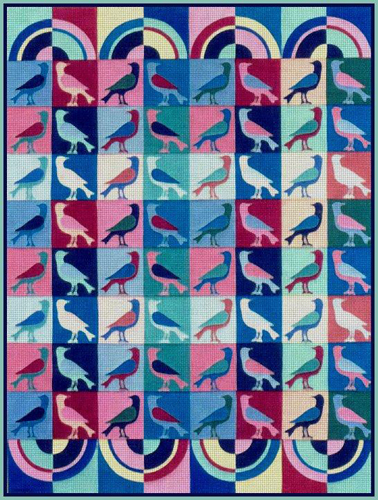 |
| Image by Alice Woodrome |
In Answer to the Question:
Is it possible to ever completely eliminate prejudice --
and how we can work towards this goal?
The answer to the first question is no. It is not possible to eliminate prejudice. We will never take the time to make that ideal a reality. Time may seem like an odd word to use. Let me explain.
The word "prejudice" means pre-judge, and it is impossible to live one day without prejudging any number of things in our lives. It saves time to mentally put things in categories that we've already made decisions about.
Normally, I pass when I am faced with the decision whether to have a dish with artichokes in it. Now there might be some way of preparing artichokes that I could choke down, but after several experiences with the odd vegetable, I've tried enough and will not waste my time trying any more. I have a prejudice against artichokes because I have decided that artichokes are not good, and it saves me time. I might even share my opinions about artichokes with my children or other people who do not have the benefit of my experience with the vegetable.
Artichokes, however, are not people. But we tend to use the same strategy with people - or rather, groups of people. It does save us time: we don't have to think. We know what hispanics are like and orientals, and blacks because we've had dealings with some of them or because we've accepted the opinions of those we respect. Sometimes we merely accept that some stereotype is true. That really saves time. We don't have to even have a conversation with a person to know what they are like. Knowing their ethnicity is enough.
As politically incorrect as it might be, the fact is that we are not all alike. We do not look alike and we are not alike on the inside, either. The very fact that such widely diverse cultures have evolved is testimony that our sensibilities are different.
Other factors, no doubt, played a part in creating the diversity, but whatever accounts for the differences in groups of people, only the willfully blind would deny they exist. Just as some families are particularly athletic, or stoic, or excitable, different ethnic groups can have certain traits that seem to be prevalent in that particular group. One only needs to spend a little time immersed in another culture to begin to recognize this. Some of these common traits we might consider positive and some negative, but any one of the traits is only true in general. Any individual in any ethnic group can be atypical. This is an important point. I might be part of an ethnic group that is musical in general, but I might be part of a subgroup within that group that did not inherit any musical talent.
But all of that is irrelevant, too. It doesn't matter if a stereotype is based on some reality, and it doesn't matter if our experience with a particular ethnic group has been negative. Is it fair to judge an individual based on the ethnic group to which he belongs instead of taking the time to discover his worth through his actions and words? No one wants to be judged for what someone else did or didn't do.
How can we work towards this goal of not prejudging people? The government cannot do it, the schools cannot do it, no group can do it. Individuals have to do it, daily in their own lives. It takes time, because it requires thinking. We do it by remembering that people are not artichokes.